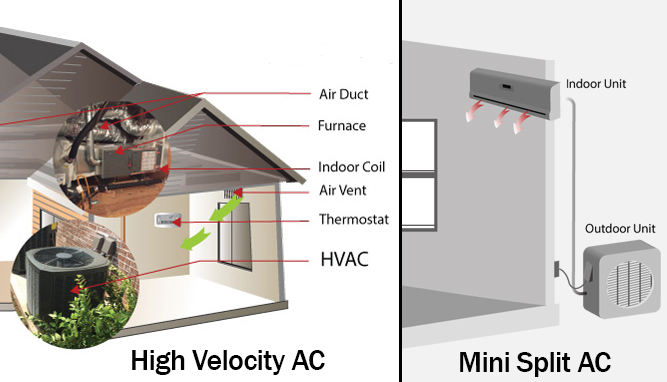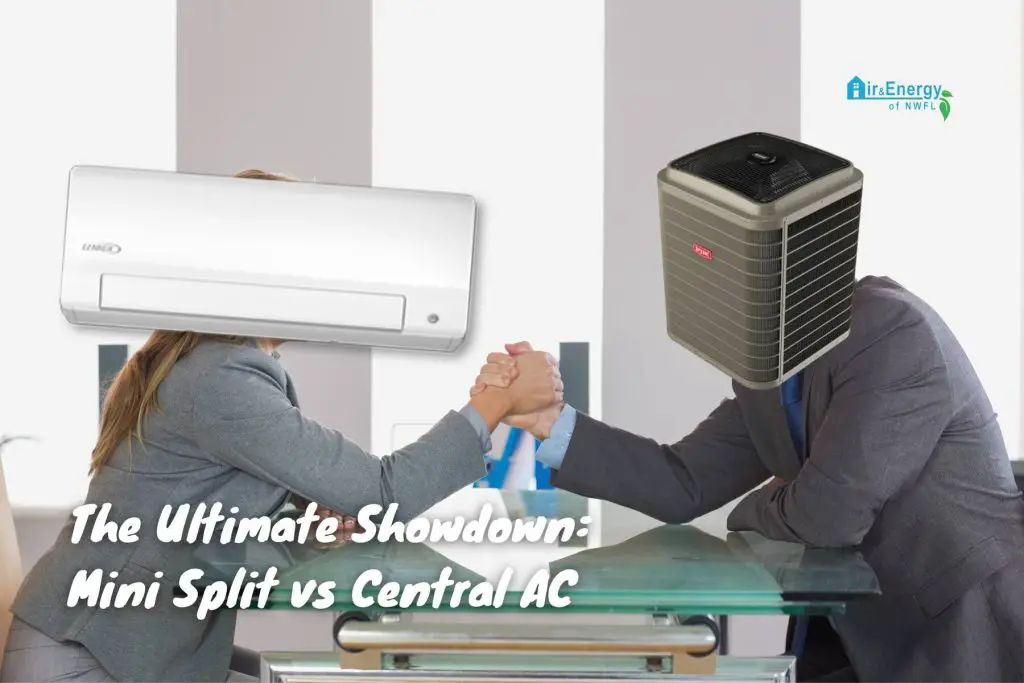When it comes to cooling your home, there are several options to choose from. Two popular choices are traditional air conditioners and mini split systems. Both have their pros and cons, and it’s important to understand the differences between the two before making a decision. In this article, we’ll explore the key factors to consider when choosing between an air conditioner and a mini split system.
Cost
One of the most significant factors to consider when choosing between an air conditioner and a mini split system is the cost. Traditional air conditioners tend to be more affordable upfront, as they are a single unit that can be installed relatively quickly. On the other hand, mini split systems are more expensive initially, as they require a separate indoor unit and outdoor compressor, as well as the cost of installation. However, mini split systems are often more energy-efficient, which can lead to long-term cost savings on utility bills.
| Cost Factor | Air Conditioner | Mini Split |
|---|---|---|
| Upfront Cost | Lower | Higher |
| Long-term Efficiency | Less efficient | More efficient |
Installation
Installation is another important consideration when comparing air conditioners and mini split systems. Traditional air conditioners require ductwork, which can be costly and time-consuming to install, especially in older homes that were not originally designed for central air. Mini split systems, on the other hand, do not require ductwork, making them easier and less invasive to install. This can be a significant advantage for homeowners looking to add cooling to a specific room or section of their home.

Credit: hvac.sempersolaris.com
Flexibility
Mini split systems offer more flexibility than traditional air conditioners. With a mini split system, you can have multiple indoor units connected to a single outdoor compressor, allowing you to control the temperature in different areas of your home independently. This makes mini split systems an ideal choice for homeowners who have specific comfort needs for different areas of their home, such as a home office or a sunroom.
Appearance
When it comes to appearance, mini split systems have a clear advantage over traditional air conditioners. The indoor units of mini split systems are sleek and modern, and they can be mounted high on the wall or even recessed into the ceiling, making them much less obtrusive than traditional air conditioning units. This can be especially advantageous for homeowners who are concerned about the visual impact of cooling units on the interior or exterior of their home.
Conclusion
Ultimately, the choice between an air conditioner and a mini split system will depend on your specific needs and priorities. If upfront cost and simplicity of installation are your main concerns, an air conditioner may be the best option for you. However, if energy efficiency, flexibility, and aesthetics are important to you, a mini split system could be the ideal choice. Consider the factors outlined in this article and weigh them against your own preferences to make an informed decision that will keep you cool and comfortable for years to come.

